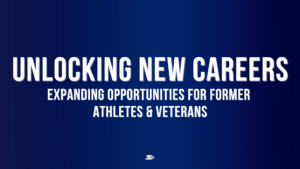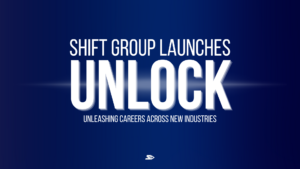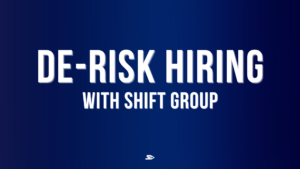October 6, 2022
Bhupendra Rathod
Chris Ward comes from humble beginnings in small-town Massachusetts. His parents grew up in Dorchester and are the kind of blue-collar, salt-of-the-earth folks that have never heard of the NESCAC.
Chris might have been a teacher, firefighter, or cop, had he not ended up at Bates. His time at Bates expanded his horizons and showed him another world. Instead of heated small-town rivalries with Medway and Medfield, Chris met people from Pakistan. At Bates, he saw his first BMW and got a job at a high-end moving company. He got a chance to move couches and dressers for professional athletes and titans of industry.
For those of us from humble beginnings, how can we improve our trajectory?
Maybe sales.
Chris credits his Mom for his start in technology sales. You’ll have to listen to the episode to hear his impersonation of Mrs. Ward, but she urged him from a young age to focus on “math or computers.”
“And I sucked at math.”
Most people seem to end up in software sales by accident, but not Chris. He followed his Mom’s advice and set out to become a tech salesman. He got started by leveraging his network. If you’re lucky enough to go to college and play on a sports team, you’ve got a built–in family of people who want to help you succeed. Start there. Find people who’ve done what you want to do and then reach out and ask for help. Most people want to reach back into their network and pull people along if they can.
Chris did a shift at Oracle, learning a bit about tech and sales, and business.
Chris remembers spending time with friends who were working at startups like BrightCove and HubSpot back in the mid-2000s. They had their own language and inside jokes and he felt jealous of the fulfillment that they were getting from their jobs. He wasn’t getting that at Oracle.
Chris talks about this triggering a period of self-reflection and coaches the listeners to do the same. A couple of helpful questions that he asks:
- “Do you have a growth mindset?”
- “Do you want to make an impact or be one of a few thousand sellers on a well-worn career path?”
- “Do you want to build teams and fix real problems?
- These questions can help crystallize your intentions when faced with the decision of joining a well-established company versus jumping into the startup game. To be clear, there’s nothing wrong with joining a large company. Startups are often touted as sexier and more fun, but large companies have advantages of their own. Large companies offer stability and a proven, predictable career path.
The key is to ask questions and listen for the answers. Chris knew that he needed to test out the viability of a career with an early-stage company. This brings Chris into contact with Jimmy Mac (episode 10) and Turbonomic.
Chris could immediately feel the difference in working for an organization of this size (Turbo was smaller than he initially felt comfortable with). He talks about intense, sweaty sessions where he learned to cold call. He talks about a ten-year run at a company that ultimately got acquired by IBM. Here are a couple of lessons that helped Chris thrive.
- Push yourself out onto the “skinny branches”
- Work hard to make a real impact
- Zoom out periodically and figure out where your skillset can be most helpful
This last lesson is an important one that we haven’t heard from any other guests. In order to have longevity at a startup and be around long enough to see your options vest, you need to be an impact player. One way to do this is to reinvent yourself every couple of years. It can be brutally hard to be an individual contributor for a decade, so keep your eyes open for other opportunities to use your skillset to propel the company forward. Chris launched the first formal BDR program and grew it to 45 people. He followed that up by launching the first customer success and the post-sales team at Turbo. Each new position brought the energy of a fresh start but inside a company where he was already highly valued. If you have a chance and the skillset to follow Chris’ path, it’s one worth considering.


